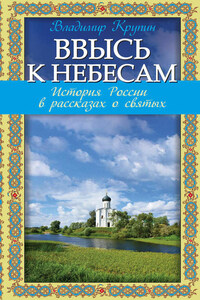TO SENORITA MARIQUITA GUTIERREZ
Senorita,
It is, indeed, kind of you to condone, by your acceptance of the dedication of this small book, the theft of your name, perpetrated without your knowledge, in its title. And in thanking you for that acceptance I seize another opportunity of apologizing for that theft.
I need not tell you that in drawing Mariquita's portrait I have not been guilty of the further liberty of attempting your own, since we have never met, except on paper, and you belong to that numerous party of my friends known to me only by welcome and kind letters. But I hope there may be a nearer likelihood of my meeting you than there now can be of my seeing your namesake.
That you and some others may like her I earnestly trust: if not it must be the fault of my portrait, drawn perhaps with less skill than respectful affection.
A whole state, as big as England and Wales, and then half as big again, tilting smoothly upward towards, but never reaching, the Great Divide: the tilt so gradual that miles of land seem level; a vast sun-swept, breeze-swept upland always high above the level of the far, far-off sea, here in the western skirts of the state a mile above it. Its sky-scape always equal to its landscape, and dominant – as the sky can never be imagined in shut lands of close valleys, where trees are forever at war with the air and with the light.
Here light and life seeming twin and inseparable: and the wind itself but the breathing of the light. What is called, by the foolish, a featureless country, that is with huge, fine features, not to be sought for but insistent, regnant, everywhere: space, tangible and palpable, height inevitably perceptible and recognizable in all the unviolated light, in the winds' smash, and the sun's, in the dancing sense of freedom: yet that dancing not frivolous, but gladly solemn.
As to little features they are slurred (to the slight glance) in the vast unity: but look for them, and they are myriad. The riverbanks hold them, between prairie-lip and water. The prairie-waves hold them. Life is innumerably present, though to the hasty sight it seems primarily and distinctly absent. There are myriads of God's little live preachers, doing each, from untold ages to untold ages, the unnoted things set them by Him to do, as their big brothers the sun and the wind, the rain and the soil do.
Of the greater beasts fewer but plenty – fox, and timber-wolf, and coyote, and still to-day an antelope here and there.
Of men few. Their dwellings parted by wide distances. Their voices scarce heard where no dwelling is at hand. But the dwellings, being solitary and rare, singularly home-stamped.
Mariquita came out from the homestead, where there was nobody, and stood at its verge (where the prairie began abruptly) where there was nobody. She was twenty years old and had lived five of them here on the prairie, since her mother died, and she had come home to be her father's daughter and housekeeper, and all the servant he had. She was hardly taller now, and more slim. Her father did not know she was beautiful – at first he had been too much engaged in remembering her mother, who had been very blonde and fair, not at all like her. Her own skin was dark; and her rich hair was dark; her grave, soft, deep eyes were dark, though hazel-dark, not black-dark: whereas her mother's hair had been sunny-golden, and her eyes bright (rather shallow) blue, and her skin all white and rose.
Her mother had taught school, up in Cheyenne, in Wyoming, and had been of a New England family of Puritans. Her father's people had come, long ago, from Spain, and he himself had been born near the desert in New Mexico: his mother may have been Indian – but a Catholic, anyway.
So, no doubt, was José: though he had little occasion to remember it. It was over fifty miles to the nearest church and he had not heard Mass for years. He had married his Protestant wife without any dispensation, and a judge had married them.
Nevertheless when the child came, he had made the mother understand she must be of his Church, and had baptized her himself. When Mariquita was ten years old he sent her to the Loretto nuns, out on the heights beyond Denver, where she had been confirmed, and made her first Communion, and many subsequent Communions.
For five years now she had had to "hear Mass her own way." That is to say, she went out upon the prairie, and, in the shade of a tree-clump, took her lonely place, crossed herself at the threshold of the shadow, and genuflected towards where she believed her old school was, with its chapel, and its Tabernacle. Then, out of her book she followed the Ordinary of the Mass, projecting herself in mind and fancy into that worshipping company, picturing priest and nuns and school-fellows. At the Sanctus she rang a sheep-bell, and deepened all her Intention. At the Elevation she rang it again, in double triplet, though she could elevate only her own solitary soul. At first she had easily pictured all her school-fellows in their remembered places – they were all grown up and gone away home now. The old priest she had known was dead, as the nuns had sent her word, and she had to picture








